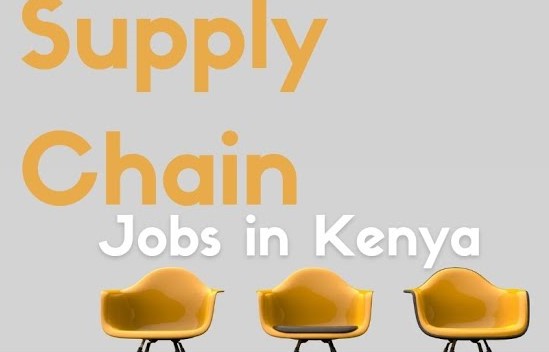The Evolution of the Supply Chain in Kenya: Unlocking New Opportunities
In Kenya, the supply chain landscape has seen a remarkable transformation over the years, unlocking new opportunities for businesses in various industries. From traditionally relying on manual processes to embracing modern technologies, the evolution of the supply chain in Kenya has paved the way for improved efficiency, cost-effectiveness, and enhanced customer satisfaction.
With technology playing a pivotal role, businesses in Kenya are adopting advanced inventory management systems, automated warehousing solutions, and smart logistics platforms. This shift has not only streamlined operations but also empowered businesses to scale and expand their reach. Moreover, with the rise of e-commerce, the supply chain has become more customer-focused, facilitating faster deliveries and seamless order fulfillment.
This evolution in the supply chain has presented both local and international businesses with new opportunities to invest and grow in Kenya. From agricultural exports to manufacturing and retail, businesses across various sectors are capitalizing on the revamped supply chain to tap into the country’s growing consumer base. Furthermore, this evolution has also opened doors for logistics and technology companies to collaborate with local businesses and offer innovative solutions tailored to the Kenyan market.
In a nutshell, the evolving supply chain in Kenya is driving economic growth and unlocking new opportunities for businesses, propelling the country towards a more prosperous future.
Traditional Supply Chain Practices in Kenya
The traditional supply chain practices in Kenya were characterized by manual processes, lack of real-time visibility, and limited automation. Small-scale businesses heavily relied on fragmented supply chains, which often led to inefficiencies, delays, and increased costs. These challenges were particularly prominent in rural areas, where infrastructure limitations posed additional hurdles for the smooth flow of goods.
Furthermore, the lack of integration and coordination between different players in the supply chain resulted in bottlenecks and information gaps. This, in turn, hindered the ability to accurately forecast demand, optimize inventory levels, and meet customer expectations.
However, despite these challenges, the traditional supply chain in Kenya played a crucial role in supporting the economy by facilitating trade and ensuring the availability of essential goods. It provided employment opportunities for many, especially in the agricultural sector, which forms a significant part of Kenya’s economy.
Challenges Faced by the Traditional Supply Chain in Kenya
The traditional supply chain in Kenya faced several challenges that hindered its efficiency and effectiveness. One of the major challenges was the lack of infrastructure, especially in remote areas. Poor road networks, limited access to electricity, and inadequate warehousing facilities made it challenging to transport goods and store them in optimal conditions.
Moreover, the reliance on manual processes and paper-based documentation resulted in a lack of real-time data, making it difficult to make informed decisions. This led to issues such as stockouts, excess inventory, and inaccurate demand forecasting.
Another challenge was the fragmented nature of the supply chain, with limited collaboration and information sharing between different stakeholders. This lack of coordination often led to delays, miscommunication, and increased costs.
Additionally, the traditional supply chain faced challenges related to customs and regulatory procedures. Cumbersome paperwork, long clearance times, and corruption at border points hindered the smooth movement of goods, especially for businesses engaged in cross-border trade.
Let’s delve deeper into each challenge and explore relevant statistics where applicable:
Infrastructure Deficiency:
Challenge: Poor road networks, limited access to electricity, and inadequate warehousing facilities hindered efficient transportation and storage.
Statistics: According to the World Bank, only 21% of Kenya’s rural population has access to electricity. Additionally, the World Economic Forum’s Global Competitiveness Report ranks Kenya 98th out of 141 countries in terms of infrastructure quality.
Manual Processes and Lack of Real-Time Data:
Challenge: Relying on manual processes and paper-based documentation led to inefficiencies and a lack of real-time insights.
Statistics: Unfortunately, specific statistics on manual processes within the supply chain are scarce. However, anecdotal evidence suggests that digitization efforts are gradually improving this aspect.
Fragmented Supply Chain:
Challenge: Limited collaboration and information sharing among stakeholders caused delays and miscommunication.
Statistics: A study by the Kenya Institute of Management found that only 30% of supply chain professionals collaborate effectively across functions.
Customs and Regulatory Hurdles:
Challenge: Cumbersome paperwork, long clearance times, and corruption at border points affected the movement of goods.
Statistics: The World Bank’s Ease of Doing Business Index ranks Kenya 56th out of 190 countries in terms of trading across borders. However, challenges persist, especially at border crossings.
The Evolution of the Supply Chain in Kenya
The evolution of the supply chain in Kenya has been driven by advancements in technology and changing market dynamics. Businesses have recognized the need to adopt modern practices to stay competitive and meet the evolving demands of customers.
One of the key drivers of this evolution has been the adoption of advanced inventory management systems. Businesses are leveraging technologies such as barcode scanning, RFID tagging, and cloud-based software to gain real-time visibility into their inventory levels, track shipments, and manage stock more efficiently. This has resulted in reduced stockouts, improved order accuracy, and better overall inventory management.
Furthermore, automated warehousing solutions have revolutionized the way goods are stored and managed. Automated systems, such as conveyor belts, robotics, and automated picking and packing, have increased efficiency, reduced errors, and accelerated order fulfillment. This has enabled businesses to enhance their operational capabilities and meet customer expectations for faster deliveries.
Smart logistics platforms have also played a significant role in the evolution of the supply chain in Kenya. These platforms leverage data analytics, machine learning, and AI-powered algorithms to optimize route planning, improve resource allocation, and minimize transportation costs. By leveraging technology, businesses can now make data-driven decisions and optimize their logistics operations for maximum efficiency.
Modern Technologies and Innovations Shaping the Supply Chain in Kenya
Several modern technologies and innovations are shaping the supply chain landscape in Kenya. One such technology is blockchain, which has the potential to revolutionize supply chain transparency and traceability. By leveraging blockchain, businesses can create an immutable record of every transaction and movement of goods, ensuring transparency and reducing the risk of fraud.
Internet of Things (IoT) devices and sensors are also playing a vital role in the modern supply chain. These devices can be used to track the location, temperature, and condition of goods in real-time, providing valuable data for decision-making and ensuring the quality and safety of products.
Additionally, artificial intelligence (AI) and machine learning (ML) algorithms are being employed to analyze vast amounts of data and identify patterns and trends. This enables businesses to make more accurate demand forecasts, optimize inventory levels, and improve overall supply chain efficiency.
Moreover, the rise of e-commerce has necessitated the development of last-mile delivery solutions. Delivery drones, autonomous vehicles, and crowd-sourced delivery platforms are being utilized to facilitate faster and more efficient last-mile deliveries, meeting the growing expectations of online shoppers.
Opportunities for Growth and Development in the Kenyan Supply Chain
The evolution of the supply chain in Kenya has brought forth numerous opportunities for growth and development. Businesses across various sectors can leverage the revamped supply chain to tap into the country’s growing consumer base and expand their market reach.
For instance, in the agricultural sector, improved supply chain practices have opened up opportunities for farmers to export their produce to international markets. By adopting modern technologies, farmers can ensure the quality and freshness of their products, comply with international standards, and access new markets.
Manufacturing businesses can also benefit from the evolving supply chain by streamlining their production processes, reducing waste, and enhancing efficiency. This enables them to meet customer demands more effectively and compete on a global scale.
Additionally, the retail sector has experienced significant growth due to e-commerce and the changing expectations of customers. Businesses can leverage the evolving supply chain to offer faster deliveries, seamless order fulfillment, and personalized customer experiences, thereby gaining a competitive edge in the market.
Furthermore, the evolution of the supply chain has created opportunities for logistics and technology companies to collaborate with local businesses and offer innovative solutions tailored to the Kenyan market. This collaboration can lead to the development of new services, job creation, and economic growth.
Case Studies of Successful Supply Chain Transformations in Kenya
Several case studies illustrate the successful transformation of supply chains in Kenya. One such example is Twiga Foods, a Kenyan-based company that has revolutionized the agricultural supply chain. Through its mobile-based platform, Twiga Foods connects small-scale farmers with retailers, eliminating middlemen and ensuring fair prices for both farmers and retailers. This streamlined supply chain has empowered farmers to access a larger customer base and retailers to source fresh produce directly from the source.
Another case study is Copia Global, an e-commerce platform that focuses on serving rural and low-income communities in Kenya. Copia Global leverages a network of agents, known as “Copia Points,” to deliver products to customers in remote areas. This innovative supply chain model has enabled Copia Global to reach underserved markets and provide essential goods to communities that were previously inaccessible.
These case studies highlight the power of innovation and technology in transforming supply chains and unlocking new opportunities for businesses in Kenya.
Snapshots : Twiga Foods, Copia Group, Tenderzville Portal
Twiga Foods: Bridging Farmers and Retailers
Status: Twiga Foods remains active and continues to play a significant role in Kenya’s agricultural supply chain.
Overview: Twiga Foods, founded in 2013, has disrupted traditional supply chains by connecting small-scale farmers directly with urban retailers. Their mobile-based platform eliminates intermediaries, ensuring fair prices for both farmers and retailers.
Impact:
Empowering Farmers: By bypassing middlemen, Twiga empowers farmers to access a larger customer base. They can sell their produce at competitive rates, improving their livelihoods.
Efficient Sourcing: Retailers benefit from sourcing fresh produce directly from the source, reducing costs and ensuring quality.
Recent Developments:
Leadership Transition: In January 2024, Twiga Foods’ founder and long-serving CEO, Peter Njonjo, resigned from the board after a decade at the helm. Foreign shareholders now control the company.
Fundraising Success: Twiga recently closed a new round of funding, estimated at $35 million, adding to the cumulative capital raised since inception (over $160 million).
Copia Global: Serving Underserved Communities
Status: Copia Global remains active and committed to its mission of serving rural and low-income communities in Kenya.
Overview: Copia Global operates an e-commerce platform that transforms underserved Africans into empowered global consumers. Their innovative supply chain model leverages a network of local agents called “Copia Points.”
Impact:
Last-Mile Delivery: Copia’s agents deliver essential goods to remote areas, overcoming geographical barriers.
Inclusivity: By reaching previously inaccessible markets, Copia ensures that even marginalized communities have access to quality products.
Recent Developments:
Funding and Growth: Copia Global secured a Series C funding round of $70.6 million in December 2023, reinforcing its commitment to long-term operations.
Employee Count: As of January 2022, Copia employs over 1,700 individuals
Tenderzville Portal (SupplyChain Coded)
Yes, we are redefining supply chain and Tenderzville recognizes that blockchain technology has the power to significantly transform supply chain management.
Blockchain creates a secure and transparent record of transactions that can be tracked and verified at every step.
By adopting blockchain, businesses can improve efficiency, reduce costs, and optimize operations, making it a popular strategy for forward-thinking companies. We are in the process of working to deliver the blockchain app, which will be accessible through an on-boarding and supply chain simulation app (First Quarter 2025).
Government Initiatives and Policies Supporting the Evolution of the Supply Chain in Kenya
The Kenyan government has recognized the importance of a robust supply chain in driving economic growth and has implemented several initiatives and policies to support its evolution.
One such initiative is the Kenya Trade Network Agency (KenTrade), which aims to simplify and digitize trade processes, reduce bureaucracy, and enhance efficiency. Through the National Electronic Single Window System, businesses can now submit trade documents online, reducing paperwork and clearance times.
The government has also invested in infrastructure development, including the improvement of road networks, expansion of ports, and the construction of logistics parks. These infrastructure developments have facilitated the smooth flow of goods and reduced transportation costs, benefiting businesses across various sectors.
Furthermore, the government has enacted policies to promote local manufacturing and value addition. By encouraging businesses to produce goods locally, the government aims to reduce reliance on imports and create job opportunities for Kenyans. This initiative supports the growth of the local supply chain and contributes to the overall economic development of the country.
More on Tenderzville?
Join the Waitlist, Get ahead of the crowd
Let’s explore how we’re shaping the future of supply chain management:
Blockchain Transformation:
Secure and Transparent: Blockchain transforms supply chain management by creating a secure and transparent record of transactions that can be tracked and verified at every step.
Efficiency and Cost Reduction: Adopting blockchain technology improves efficiency, reduces costs, and optimizes operations, making it a popular strategy for businesses.
Inclusive Supply Chain Ecosystem:
We believe that supply chain isn’t just about individual components; it’s about the entire ecosystem working together.
Our vision is to create an inclusive environment where everyone, regardless of their stage in the supply chain journey, can find value.
Whether you’re a student exploring the field, a job seeker hunting for opportunities, or a professional in transport procurement seeking insights, Tenderzville is your go-to platform.
Supplier Directory:
Our comprehensive supplier directory connects companies with quality vendors.
It provides essential contact information and details about the products and services offered by suppliers.
Our goal? To reach +50,000 suppliers and foster meaningful connections.
Supply Chain Forum:
Join the Supply Chain Coded Forum to discuss, seek advice, and collaborate globally.
Whether you’re a student, practitioner, professor, or enthusiast, share the latest trends and expertise to drive success in the supply chain industry.
SCM Jobs Board:
Looking for supply chain job opportunities? Check out our one-stop page compiling open positions from top sites like LinkedIn and Careerjet.
From entry-level to management roles, start your job search today and advance your career with just one click!
Marketing Suppliers:
Our marketing channels elevate businesses to new heights.
Whether online or through our directory, we connect you with potential clients and drive growth.
SCM Start-ups:
Innovative entrepreneurs, we’ve got your back! Need support to revolutionize the supply chain?
Let’s join forces—turn your dreams into reality.
Mobile and Web App (Coming Soon):
Stay tuned for our mobile and web app designed specifically for supply chain needs.
Inspired by Success Stories:
We’re inspired by leading companies with high value, influencing communities.
Our vision? To be as indispensable as Google, as engaging as YouTube, and as community-centric as Reddit.
Comprehensive Supply Chain Newsletter:
Stay updated with industry trends through our newsletter.
Our directory serves as a bridge connecting businesses and individuals within the ecosystem.
Remember, without change, there is no innovation. Let’s redefine the supply chain narrative together! 🌍📦
Key Players in the Modern Supply Chain Landscape in Kenya
Several key players are shaping the modern supply chain landscape in Kenya. These include logistics companies, technology providers, e-commerce platforms, and government agencies.
Logistics companies such as Siginon Group, Bollore Transport & Logistics, and DHL are driving the adoption of modern supply chain practices in Kenya. These companies offer end-to-end logistics solutions, including warehousing, transportation, and value-added services, enabling businesses to optimize their supply chain operations.
Technology providers like Safetrac Limited, Freight Logistics Solutions, and E-Nnovate Solutions are offering innovative solutions to improve supply chain visibility, automate processes, and enhance overall efficiency. These technologies are empowering businesses to make data-driven decisions and optimize their operations.
E-commerce platforms such as Jumia, Kilimall, and Copia Global are revolutionizing the retail supply chain in Kenya. These platforms enable businesses to reach a wider customer base, offer seamless order fulfillment, and provide convenient delivery options.
Government agencies, including the Kenya Revenue Authority (KRA) and KenTrade, are instrumental in driving the evolution of the supply chain through their initiatives and policies. These agencies work closely with businesses to simplify trade processes, reduce barriers, and enhance overall efficiency.
Conclusion
The evolution of the supply chain in Kenya has unlocked new opportunities for businesses, driven economic growth, and facilitated the country’s journey towards a more prosperous future. With the adoption of modern technologies, businesses are now able to streamline operations, improve efficiency, and enhance customer satisfaction.
The future of the supply chain in Kenya holds immense potential for growth and development. As businesses continue to leverage technology, collaborate with local partners, and adapt to changing market dynamics, the supply chain will become even more efficient, customer-focused, and sustainable.
However, challenges still exist, such as the need for further infrastructure development, addressing regulatory bottlenecks, and ensuring the availability of skilled talent. By addressing these challenges and leveraging the opportunities presented by the evolving supply chain, Kenya can position itself as a hub for trade and investment, attracting both local and international businesses.
In conclusion, the evolution of the supply chain in Kenya is a testament to the country’s resilience, adaptability, and commitment to progress. By embracing innovation, collaboration, and continuous improvement, Kenya is unlocking new opportunities and paving the way for a thriving supply chain ecosystem.





